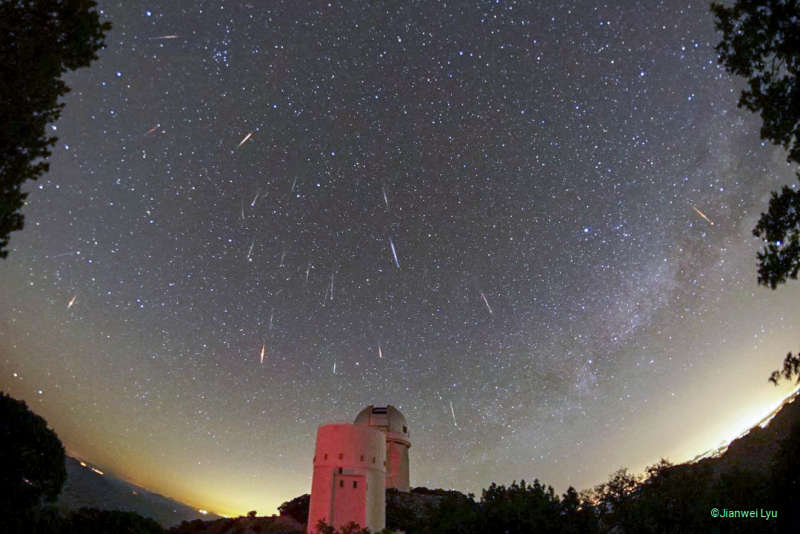
|
Credit & Copyright: Jianwei Lyu
(Steward Obs., U. Arizona)
Explanation:
It wasn't the storm of the century -- but it was a night to remember.
Last night was the peak of the
Tau Herculids meteor shower,
a usually modest dribble of
occasional meteors originating from the
disintegrating Comet
73P/Schwassmann-Wachmann 3.
This year,
calculations showed that the Earth might be passing through a particularly dense
stream of
comet debris -- at best creating a
storm of bright meteors streaking out from the constellation of Hercules.
What actually happened fell short of a meteor storm, but could be called a
decent meteor shower.
Featured here is a composite image taken at
Kitt Peak
National Observatory in
Arizona,
USA
accumulated over 2.5 hours very late on May 30.
Over that time, 19 Tau Herculids
meteors
were captured, along with 4 unrelated meteors. (Can you find them?)
In the near foreground is the
Bok 2.3-meter Telescope with the
4.0-meter Mayall Telescope just behind it.
Next year, the annual Tau Herculids are expected to return to its
normal
low rate, with the
next active night forecast for 2049.
|
January February March April May June July August September October November December |
| ||||||||||||||||||||||||||||||||||||||||||||||||
NASA Web Site Statements, Warnings, and Disclaimers
NASA Official: Jay Norris. Specific rights apply.
A service of: LHEA at NASA / GSFC
& Michigan Tech. U.
Based on Astronomy Picture
Of the Day
Publications with keywords: meteor shower
Publications with words: meteor shower
See also:
